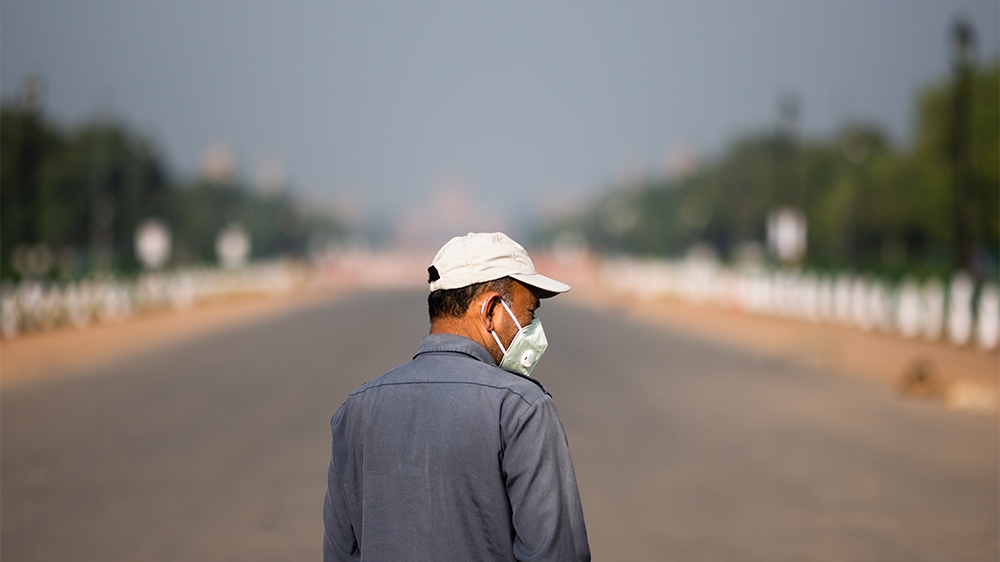Cities deserted as India launches curfew to stem coronavirus
Most businesses closed as government-imposed curfew comes into force, leaving only hospitals, other vital services open.

Cities across India were deserted on Sunday morning as the country of some 1.3 billion people imposed a nationwide curfew aimed at curbing the spread of the new coronavirus.
Prime Minister Narendra Modi had on Thursday called for the “Janata Curfew” (Public Curfew in Hindi) or self-imposed quarantine from 7am to 9pm to break the chain of infections as well as assess India’s ability to fight the pandemic.
Keep reading
list of 3 itemsYour coronavirus emergency kit: Five workouts to do at home
What happens if you catch the new coronavirus?
India has 332 cases of COVID-19, the disease caused by the coronavirus, to date, according to a tally by Johns Hopkins University. Four people have died so far.
“Let us all be part of this curfew, which will add tremendous strength to the fight against the COVID-19 menace,” Modi tweeted, moments before the curfew.
“The steps we take now will help us in the times to come. Stay indoors and stay healthy.”
Television footage showed deserted streets in the capital, New Delhi, and metropolitan cities such as Mumbai and Kolkata. Only businesses and government establishments dealing in essential items and services will remain open.

While some Indian states had already issued stay-in-place orders, Sunday marked the first nationwide effort at social isolation practices the World Health Organization believes are critical to flattening the infection curve worldwide.
No commercial aeroplanes from abroad are allowed to land in India for a week starting on Sunday.
“Beyond Sunday, there is a lot of speculation that this curfew could be extended – and states across the country including Rajasthan, Gujarat and Punjab have already extended the lockdown,” said Al Jazeera’s Elizabeth Puranam, reporting from New Delhi.
“Other states like Goa, Uttarakhand and Himachal Pradesh have already shut their borders,” she added, noting that most of India appeared to be “eerily quiet” amid the curfew.
An extension of the measure, however, would pose a “massive challenge” for the government in a country where “many people need to work daily to earn a living”, Puranam said.
“Street vendors say that if they don’t go out, their families will simply die of hunger.”
In his speech last week, Modi asked Indians to stay at home but to go out on their balconies at 5pm with pots and pans to cheer frontline healthcare workers.
India’s government has made fervent appeals to the public to practise social distancing and good hand hygiene.
Authorities maintain there is no community transmission to date but experts fear that the indigenous spread of the disease in a country where tens of millions live in dense urban areas with irregular access to clean water is inevitable.